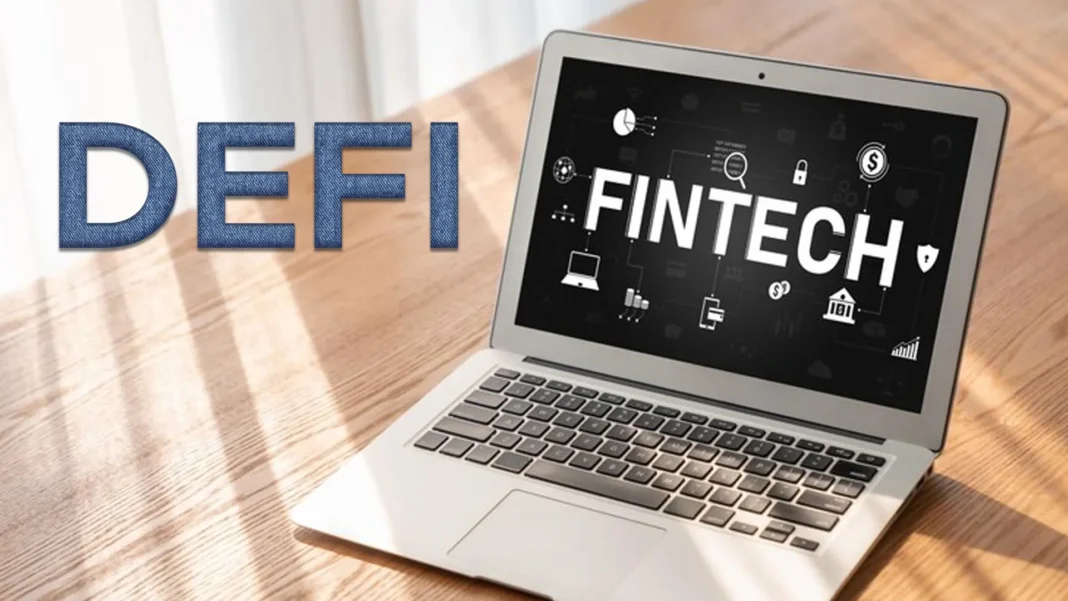- FinTech focuses on automating financial services like payments, banking, lending, etc
- Defi platforms offer programmable currency and require only a Bitcoin wallet
‘FinTech’ stands for ‘financial technology. FinTech, as the name suggests, refers to technology that facilitates and enhances financial procedures and transactions.
Cryptocurrencies with a monetary value, such as Bitcoin, Ether, and altcoins, fall under the FinTech umbrella at the moment since they are digital currencies created by software and code.
The acronym for decentralized finance is DeFi. This phrase is used to describe cryptocurrency financial markets or financial applications that make use of blockchain technology.
Financial technology
FinTech refers to the application of technology to enhance and automate a range of financial services, including lending, investing, payments, and banking. It consists of a wide range of technological innovations and improvements created with the goal of enhancing the effectiveness, usefulness, and client experience of conventional financial services.
FinTech solutions are centralized, which means they depend on a central authority or middle men like banks or payment processors to enable transactions and maintain consumer data. Robotic advisors, online payment processors, digital wallets, and mobile banking apps are a few examples.
The FinTech industry complies with all existing financial sector rules and regulations.
Regulatory bodies often enforce relevant legislation, licensing criteria, and consumer protection standards on fintech enterprises.
By utilizing technology to improve financial services’ accessibility, convenience, and usability, fintech focuses on improving the user experience. This comprises functions like mobile applications, user-friendly user interfaces, tailored recommendations, and simplified procedures.
FinTech businesses frequently work with established financial institutions, taking advantage of their knowledge, infrastructure, and clientele. Partnerships, joint ventures, or the incorporation of FinTech technologies into the current financial systems can all be part of this collaboration.
Decentralized Finance (DeFi)
DeFi is a subset of FinTech that utilizes decentralized blockchain technology to recreate and enhance conventional financial services. It uses smart contracts on blockchain platforms to cut out middlemen, improve transparency, and offer financial services to users directly.
DeFi relies on open-source blockchain systems like Ethereum and uses smart contracts to automate and carry out financial transactions without middlemen. Users will have more control over their assets and financial activities in the trustless and open financial ecosystem that is created by this initiative.
Middlemen get eliminated because of DeFi protocols and applications, which make peer-to-peer transactions possible and do away with the need for middlemen like banks or brokers. They use smart contracts to provide liquidity, yield farming, decentralized exchanges, lending, borrowing, and other financial services.
DeFi platforms offer programmable currency through the use of smart contracts. Users can use specified rules to automatically generate, modify, and execute financial agreements without user intervention. DeFi seeks to offer open and inclusive financial services to everyone with an internet connection, eschewing conventional barriers like regional restrictions, credit checks, or minimum investment demands. Only a Bitcoin wallet is required for users to use DeFi applications.
The decentralized nature of DeFi, which could not fit easily into current regulatory systems, offers regulatory problems. Regulatory agencies develop regulations and frameworks to safeguard consumers, stop money laundering, and control systemic risks in the DeFi market.
Conclusion
While DeFi employs decentralized blockchain technology to rethink financial services and enable peer-to-peer transactions without middlemen, FinTech focuses on harnessing technology to improve existing financial services, frequently with centralized solutions. With their distinct traits, objectives, and difficulties, FinTech and DeFi each contribute to the financial industry’s change.


